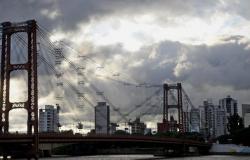The National Institute of Statistics and Censuses (Indec) released this Thursday the 13th the Consumer Price Index (CPI) registered in the month of May, which reached 4.2%. This inflation percentage is 4.6% below the 8.8% that was registered in April. With these data, San Juan economists explained that they believe it is difficult for the data to drop further.
In contact with HUARPE DIARY, the specialist Juan Manuel Frencia, said that for the Government chaired by Javier Milei it is “very good news that inflation has dropped more than four points when compared to the previous month.” However, he clarified that he does not believe that such a notable drop in this index that indicates the variation in prices from month to month can occur again.
“I believe that this is the inflationary percentage floor that the economy will reach, at least for now,” explained Frencia, who added that it should be taken into account that some rate increases were deferred for later, which when they affect the bills that users receive will make all products go up.
Added to this is that price makers continue with what Frencia defined as inflationary inertia, which implies that prices rise because they are accustomed to a context of increases. “In order for the large price makers to stop thinking about inflation, a stabilization program must be applied that is sustained over time that aims to lower this index. “Once the great trainers see that this is a serious policy and that it seeks to stop inflation, it is possible that prices will stop increasing,” he said.
When asked what percentage of inflation can be expected in the coming months, Frencia indicated that there could be a rebound and that inflation could increase, since it is expected that the increases in the electricity rate and the payment of the bonus that It involves an injection of cash into the system.
Frencia acknowledged that beyond the projections, the truth is that people on the street continue to feel that money is not enough and they practically do not perceive this drop in inflation. The economist stressed that this is because “salaries in Argentina are at historical levels comparable to those of 2001, so the worker always feels that the money is not enough.”
This newspaper also consulted Elvira Ortiz, another economics specialist and teacher. In this case, the professional disbelieved the numbers released by Indec. “I do not believe that the inflation rate is in these percentages if only the increase in fuel costs that affects the entire economy are taken into account,” she stated.
The specialist added that not even the declines in the dollar helped a consistent drop in price levels in Argentina, all of this in a context of salaries that were well below inflation levels.
The economist related this low inflation number to the approval of the Bases Law, which also brought with it a drop in the Country Risk index, which better positions Argentina in the international context.






